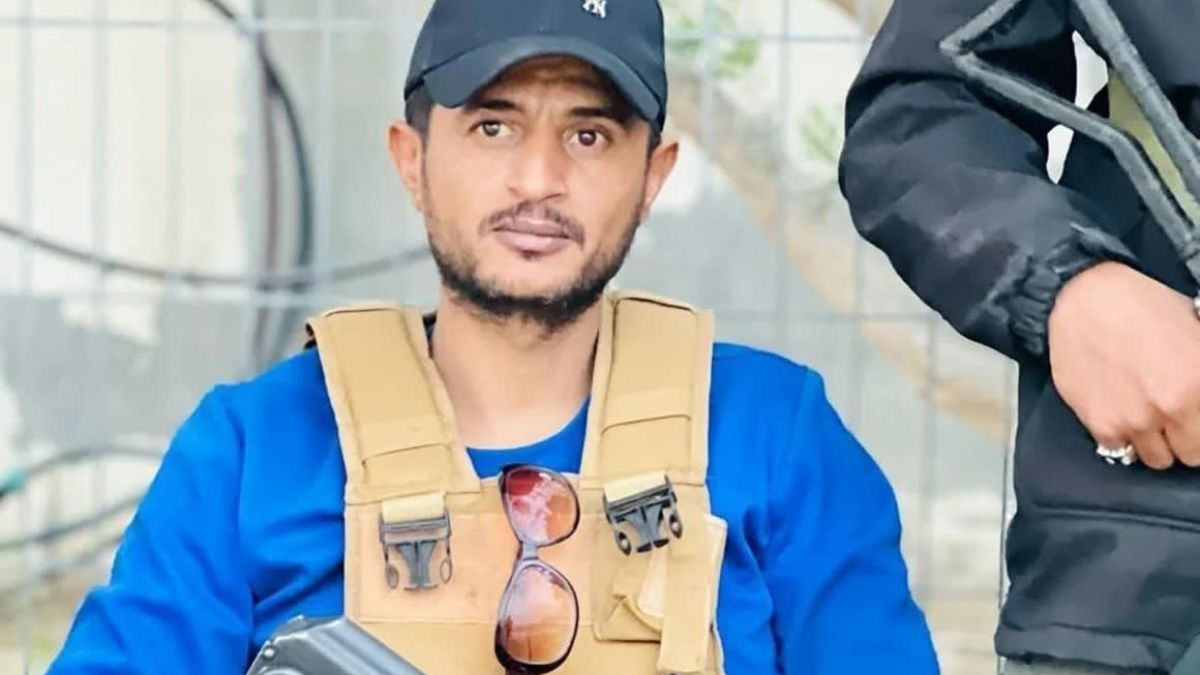Who is Abu Shabab? Popular Forces leader emerges as Hamas's biggest domestic challenger amid Gaza chaos
 Yasser Abu Shabab, the leader of an armed group known as the Popular Forces | X
Yasser Abu Shabab, the leader of an armed group known as the Popular Forces | X
Yasser Abu Shabab, the leader of an armed group known as the Popular Forces, has declared open confrontation with Hamas in the Gaza Strip, signalling a dramatic turn in the territory’s internal power struggle. In a combative interview with Israeli public broadcaster KAN on July 6, Abu Shabab said his militia was actively working to dismantle Hamas’s rule, particularly in the Rafah area. "There is no stopping a civil war against Hamas," he told the network.
The Popular Forces, a relatively small but increasingly influential militia, have filled part of the vacuum left by the collapse of Hamas's control over Gaza. Abu Shabab, a Bedouin in his 30s, commands sway in eastern Rafah, close to a critical border crossing with Israel. His group has denied receiving weapons from Israel, although Israeli officials have confirmed support, part of a broader strategy to empower local actors opposed to Hamas.
"We have tasted the bitterness and injustice inflicted on us by Hamas," Abu Shabab told KAN. "We have taken it upon ourselves to confront this aggression. We support any legitimate force that will adopt the idea of removing injustice and corruption."
The KAN interview came amid growing evidence of a total breakdown of order in Gaza. A senior officer in Hamas’s security forces told the BBC the group had lost about 80 per cent of its control over the enclave, with its command and control system in ruins after months of sustained Israeli airstrikes. He described Hamas's political, military and security leadership as devastated, claiming that about 95 per cent of its senior figures were dead. He said the group had no functioning leadership, command or communication left.
The officer painted a grim picture of internal disintegration, saying the entire security structure had vanished. He said looters had ransacked Hamas’s formerly powerful Ansar security complex, stealing everything from office equipment to building materials, while no police or security forces intervened. He noted that criminal gangs and armed clans now roamed the streets freely, and anyone who attempted to resist them risked being targeted by Israeli airstrikes.
According to the officer, even during the temporary ceasefire earlier this year, Hamas’s efforts to reorganise its political and military structures had largely failed. Since Israel resumed attacks in March, the group had lost any remaining ability to govern. He described Gaza’s security situation as a complete collapse, with salaries delayed or reduced to unusable sums, and some people reportedly dying while attempting to collect them.
He added that six clan-affiliated armed groups had emerged to fill the power vacuum, primarily in southern Gaza. One of the most prominent was Abu Shabab’s Popular Forces, which, he said, had access to funds, weapons and manpower. He claimed Hamas had placed a significant bounty on Abu Shabab’s head, fearing he could become a unifying figure for the group’s many rivals. He said Hamas fighters were more likely to prioritise targeting Abu Shabab than confronting Israeli tanks.
A retired Palestinian security official who previously helped suppress Hamas’s military wing in the 1990s said Abu Shabab’s group was gaining influence. Speaking from Cairo, the official likened the group to an “orphaned child” that everyone would want to adopt if it succeeded in toppling Hamas. He said that while public denials continued, Abu Shabab had already met a senior Palestinian intelligence officer three times and had sent assurances to Egypt via relatives in Sinai. He also claimed Abu Shabab maintained ties with the camp of exiled former Gaza security chief Mohammad Dahlan.
Israeli Prime Minister Benjamin Netanyahu recently acknowledged that Israel had activated Gaza-based clans opposed to Hamas on the advice of security officials. He defended the decision, saying it saved the lives of Israeli soldiers.
In a separate interview with Army Radio last month, Abu Shabab confirmed that his group had no political ideology and denied collaborating with Israel, although he acknowledged coordination with the Palestinian Authority on certain administrative matters. He said, “There is no dispute with the PA. There is administrative coordination regarding certain goals.” He also noted that his militia received financial and logistical aid from multiple sources, though he declined to specify them.
Abu Shabab has expressed confidence that his group would take over governance of Gaza once Hamas falls. “The Popular Forces will be the heirs in Gaza after they are crushed and defeated,” he said. He stressed that there was no military coordination with the PA and that it played no role in arming or assisting his group.
His comments followed an ultimatum issued by Hamas’s Interior Ministry, giving him 10 days to surrender. The group accused him of treason, collaborating with hostile entities, forming an armed gang and staging an insurrection. When asked about the ultimatum, Abu Shabab responded, “They committed the crime of October 7. They are the cause of the trouble of the Palestinian people, the persecution of civilians, and the killing of innocents. They should put themselves on trial, not other people.”
A Hamas officer who spoke anonymously said the group feared Abu Shabab not because of his military capabilities but because he could become a rallying point for every force that had clashed with Hamas over the past 17 years. As Gaza spirals deeper into chaos and rival factions strengthen, Abu Shabab stands at the centre of a potentially transformative power shift in the territory.
Middle East